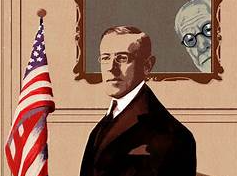An interview with Peter Turchin.
Peter Turchin, born in the Soviet Union in 1957, had a unique path to becoming a prominent thinker. His early life was marked by his family’s expulsion from the USSR in 1977, a result of his father’s dissidence. Moving to the United States, Turchin pursued biology, ultimately earning a PhD in zoology from Duke University in 1985. Early in his career, he focused on studying the population dynamics of various species—beetles, butterflies, mice, and deer—but eventually shifted to a more ambitious intellectual pursuit.
In the late 1990s, Turchin began to apply the methods of complexity science to the study of human societies. His transition from biology to history was driven by a desire to explore how the same principles that explain animal populations might be used to understand the dynamics of human history. In his new book End Times, Turchin explores the concept of societal instability and suggests that the United States, like other great empires before it, may be on the verge of a revolution.
Turchin’s work is rooted in a broad interdisciplinary approach, combining his background in ecology with an understanding of human history. He argues that certain patterns in history are predictable and that the conditions leading to social upheaval can be discerned through rigorous analysis. His predictions suggest that America is facing mounting levels of inequality, political instability, and social fragmentation, conditions that have historically led to violent revolutions.
In his analysis, Turchin uses data and mathematical models to predict the likelihood of social unrest. He draws on historical examples to show how revolutions often arise during periods of extreme inequality and when elites fail to respond to the needs of the broader population. According to Turchin, the United States may be heading in this direction, with rising political polarization and economic disparity creating a volatile environment.
Turchin’s argument challenges the conventional wisdom that modern democracies are immune to the kind of revolutionary upheaval that has marked past societies. His research suggests that the patterns driving societal collapse are still at play, and if left unchecked, they could lead to another American revolution. This provocative idea has gained attention, particularly as Americans grapple with increasing divisions and the erosion of trust in institutions.
As Turchin’s book End Times makes clear, he does not predict an inevitable revolution, but he underscores the importance of addressing the systemic problems that threaten the stability of democratic systems. The question he raises is not whether revolution is possible, but whether it is inevitable unless corrective action is taken. As America navigates its current crises, Turchin’s work serves as a reminder of the historical forces that have shaped societies—and the potential consequences of ignoring those lessons.

